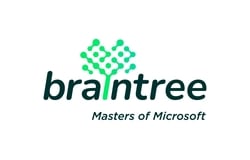Mr. Tekkie is a South African retail chain focusing on branded footwear and apparel. Founded in September 2018, the company has since expanded to 40 stores across South Africa.
Before moving to LS Retail technology, Mr. Tekkie used StoreMaster POS. The company was unhappy with the system’s lack of scalability. “After reaching a certain store count, the system became unusably slow,“ a representative for Mr. Tekkie told us.
Finding the right solution and the right partner
The company started looking for a new retail software solution. They analyzed several systems, and LS Retail technology proved to be the top choice in terms of both cost effectiveness and reliability. The company was also satisfied with the LS Retail reputation, the quality of its support and the development practices followed by the LS Retail dev team.
The new retail software was implemented with the support of Braintree by Vox, a local LS Retail partner. Planning and implementation were done over a three-month period. As this was Mr. Tekkie’s second full-scale implementation, the company had a lot of lessons learned and best practices from their first attempt. They knew from the previous implementation that the relationship with the third party developer and project planning can be the root causes of any successful implementation. “The right partner needs to be familiar with the environment and understand the customer’s expectations – for example, they must understand that production trading cannot be halted,” a Mr. Tekkie representative said.
The company decided to go for a hybrid setup. Mr. Tekkie’s central SQL data store is hosted in the cloud, with client endpoints running their own SQL implementation onsite. Transactional and stock data is bidirectionally pushed and pulled to the endpoint in store databases. Although the company would have liked to go for a pure cloud solution, the risk of downtime due to poor local infrastructure led them to go for the next best option.
A unified view of the whole business with LS Retail technology
The LS Retail management system offers a unified view of the business, giving Mr. Tekkie a wealth of information that different departments can use. For example, the stock procurement team can get an analytical overview on what is selling, why and in which quantities. This information can then be transmitted to the supply chain. The finance team can see what orders have been placed, and there is a unified view on warehousing/dispatch and transfers between stores. “Having all the information in one place makes it much easier to measure store performance against multiple variables, as it is all captured and stored in data sets for querying,” a representative for Mr. Tekkie told us.
Making data-based decisions
The company uses the reports that are part of the standard solution to get close to real-time information on our business trends. This information is then used to take rapid data-based decisions that impact the bottom line, including making changes to the strategy and starting new campaigns based on timely insights.
“The seamless integration of the LS Retail system and the Microsoft Dynamics ERP allows us to focus on what’s important while taking care of the underlying functions. This is a solution that grows with the company, and suits well the unique South African environment,” a representative for Mr. Tekkie said.



